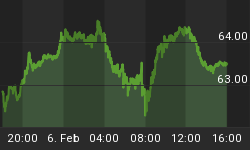Japanese prime minister Shinzo Abe is closing in on the supermajority he needs to put forth a national referendum allowing military force.
Constitutional ability to wage war is one of Abe's most cherished goals.
Shinzo Abe is within reach of a parliamentary supermajority that would let him realise his dream of revising Japan's pacifist constitution.
With elections to Japan's upper house taking place on Sunday, opinion polls suggest the prime minister and his coalition allies are closing in on the two-thirds majority needed to put constitutional amendments to a national referendum.
Changing the postwar constitution -- and ditching the war-renouncing Article 9 -- is the most cherished goal of Japanese conservatives. It could transform Japan as a nation by once again permitting it to use military force.
Constitutional reform needs a two-thirds majority in both houses of Japan's parliament before it goes to a national referendum for approval. Mr Abe already has two-thirds in the lower house. He needs to secure 162 out of 242 seats in the upper chamber as well.
Half of the upper house is elected every three years using a mixture of first-past-the-post voting in constituency seats and a national proportional representation vote.
The combination of staggered elections and proportionality make a supermajority hard to achieve, but according to a recent Nikkei poll of 33,312 voters, the ruling coalition and parties in favour of constitutional change can be confident of 147 seats and could end up with as many as 172.
"It'll be hard to touch Article 9," said Mr Honda [Masatoshi Honda, a professor of politics at Kinjo University], pointing out that while the Abe cabinet has an approval rating of 55 per cent, approval for a constitutional reform under Mr Abe is about 20 percentage points lower.
Is War the Goal?
When the goal is war, warmongers always seem to find a way. If war is the goal, another incident with China over the disputed Senkaku Islands could rally support.
Near Dogfight
I recently noted Japan Locked Military Radar on Chinese Fighters in Dispute Over Senkaku Islands in what was billed as a "near dogfight".
Should a dogfight occur, all it would take to stir up war sentiment is a claim by Japan that China fired first (regardless of who fired first).
Could the US be Drawn In?
On April 28, 2015 Breitbart reported US Reaffirms Defense of Japan's Senkaku Islands.
A day before Japan's prime minister Shinzo Abe visits president Barack Obama in the White House, Secretary of State John Kerry reaffirmed that a treaty that the United States and Japan signed in 1960 requires the United States to defend the Senkaku Islands from an attack by China.
According to Kerry, "Commitment to Japan's security remains ironclad and covers all territories under Japan's administration, including the Senkaku islands."
Commitment to Japan's Security

Ownership in Dispute
Why is this any of our business? It is not even clear who has the best claim to ownership of the islands.
In the treaty of San Francisco [the peace treaty with Japan following WWII], Japan explicitly relinquished the control of Taiwan/Formosa together with all islands appertaining or belonging to it. There is a disagreement between the Japanese, PRC and ROC governments as to whether the islands are implied to be part of the "islands appertaining or belonging to said island of Formosa" in the Treaty of Shimonoseki.
The Treaty of Shimonoseki ended the first Sino-Japanese War on April 17, 1895.
In articles 2 and 3 of the treaty "China cedes to Japan in perpetuity and full sovereignty of the Pescadores group, Formosa (Taiwan) and the eastern portion of the bay of Liaodong Peninsula together with all fortifications, arsenals and public property."
The treaty of San Francisco superseded the Treaty of Shimonoseki.
These treaties explain the three-way claims by Japan, China, and Taiwan (formerly Formosa) over the islands.
It's ridiculous for the US to be willing to go to war with China over ownership of rock piles in the ocean that hardly constitute "islands" when it is not even clear who has best claim to them.















